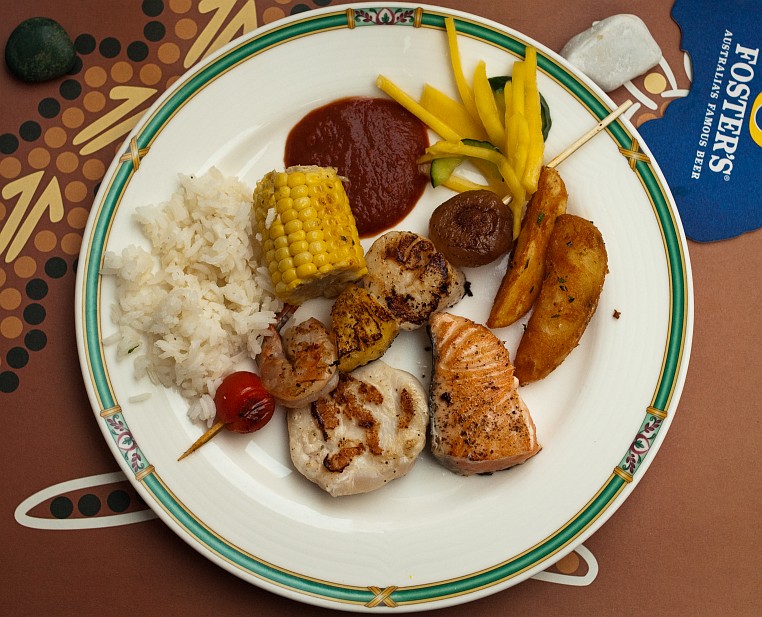An Australian barbecue leads our undercover culinary columnist to rediscover her carnivorous instincts.
You don’t have to go back very far to understand the human species’ infatuation with meat. Just about 100,000 years. That’s when cave-paintings first show our ancestors actively hunting, after about 2 million years of scavenging carcasses left by predators. The spread of hunting changed everything for us. It allowed Homo Sapiens to leave its cradle in Africa and move to the then icy Europe and North America, where plants were scarce. According to some speculations, it also made us smarter as it would have been impossible to sustain our large brains without the calorie- and nutrient-packed fat and muscle (flesh) of animals.
It is easy to see the significance of meat when you look at how people did without it in the first grain-based agrarian societies of the Middle East. The first farmers were scrawny and disease-ridden while less “advanced” hunters were strong, healthy and a stately 6-feet in height. Our taste buds also lead us to consume meat as raw meat triggers our receptors for essential salts, sugars, amino acids and nucleotides because muscle cells break apart more easily than starchy plants’ when chewing.
I’m telling you all this because I found myself thinking of how we are evolutionarily preconditioned to love meat and maybe African herbivores in particular when I found out that the most succulent meat I have ever tasted came from a gnu (a.k.a wildebeest). It was juicier, tastier than the very best fillet mignons I have ever had. If you prefer your steak well-done, then the gnu is not for you, but if you don’t like to saw through your meat then you simply have to try it.

Photo: Bence Kollányi
I had it at the Budapest Kempinski Hotel Corvinus’ terrace grill bar, where this summer’s theme is the Australian Barbecue (HUF 6,000, excluding drinks, every Thursday from 7 p.m.) The culinary experience turned out to be well worth the price, especially since the gnu was not the only exotic meat: we chewed our way through kangaroo (very tasty), ostrich (a bit too like chicken for me) and crocodile meat.
The crocodile also made me think of evolution. It tastes a bit like Hungarian fish harcsa and a bit like nothing I’ve ever tasted before. It found myself conjuring pictures of lazy crocodiles slowly submerging themselves into muddy water and laying low in the muck waiting for prey. If no-one told you what it was, you would still know that you were eating something dangerous, something that could eat you if you didn’t eat it first.
Now, I’m a girl and a dedicated omnivore, so I don’t normally get a kick out of the fact that I’m eating animals that used to live (I just like the meat), but even I felt – a bit disturbingly, in fact – a primordial rush cutting up the crocodile. As if I had bested the enemy and then proceeded to viciously and revengefully, yet still respectfully, eat him.
I guess meat really is about our fight to survive.

